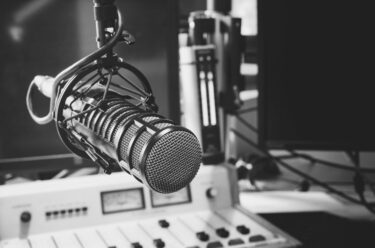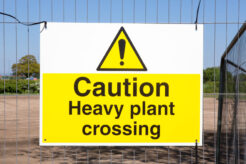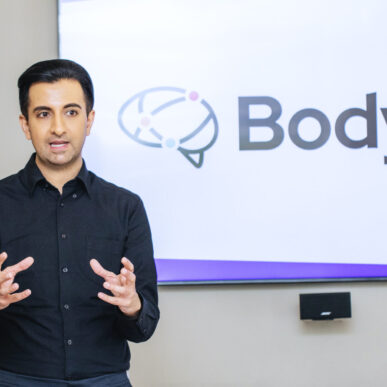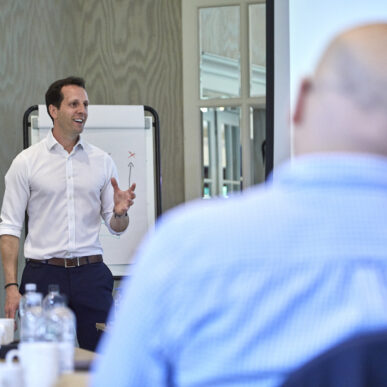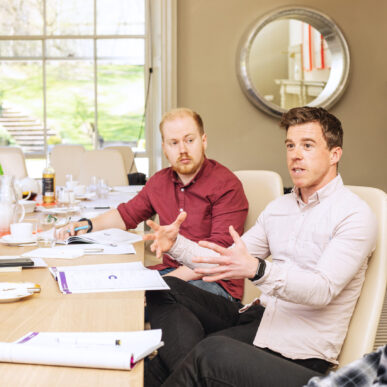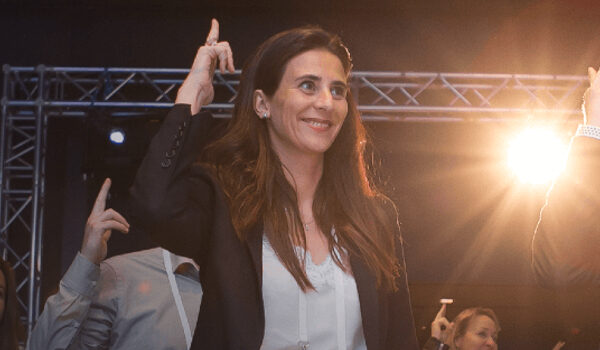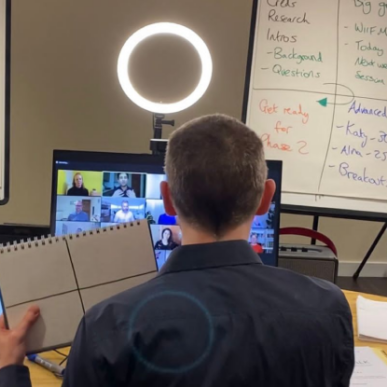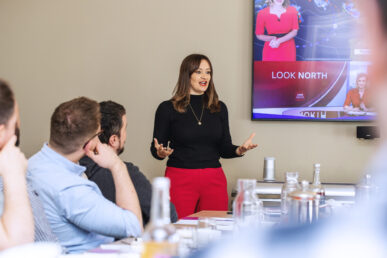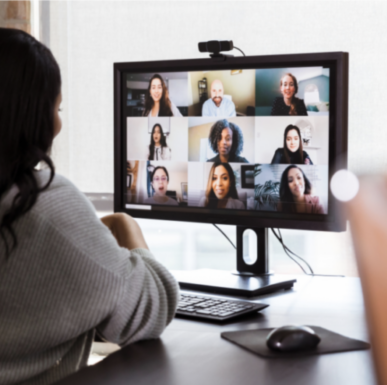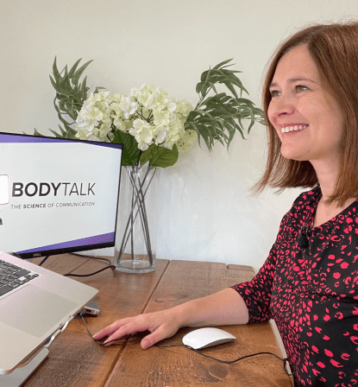“In the case of radio, the audience switching off is a literal risk. It is vital broadcasters know who they are speaking to”
Building trust in business – a lesson from radio
February 13th, 2022 marked World Radio Day.
Conceived by UNESCO in 2011, WRD is an annual celebration of radio’s role in promoting human rights. Each year has a theme – past themes have included “Gender Equality and Women’s Empowerment in Radio” and “Radio in Times of Emergency and Disaster”. This year the theme was “Radio and Trust.”
Trust in the media has been put to the test in recent years. The spread of fake news and disinformation, alongside high-profile media bias accusations, has led to the public questioning which sources they can trust.
In 2021, the European Broadcasting Union published a study into trust in the Media. Surveying the citizens of 37 European countries, it discovered a widening “trust gap” between legacy media (radio, TV, and the written press) and online media. 70% of the countries trusted the former, while 95% distrusted the latter.
A trusted medium
The most trusted of all mediums was radio, rating highest in 65% of the countries.
Trust is essential for getting people to listen to and act upon what we have to say. In business, we can assume that facts and data are enough for our audience to believe in our message. Trust, however, is something we feel. Therefore, we need to appeal to the emotional part of our brain to establish it.
The Human brain processes information in the order it developed. Because the Limbic System (the emotional brain) developed before the neocortex (the logical brain), we usually have an emotional response first. Crucially, if that emotional response is negative – if we don’t trust the speaker – it can prevent us from processing the information logically.
Radio plays a vital role in the lives of people around the world. It can provide life-saving advice in times of disaster. It can bring clarity and reassurance amid confusion. It can give the disenfranchised a voice and bring their story to the world’s attention. However, if the broadcaster is not trusted, the information it shares will fall on deaf ears.
How, then, does radio establish and retain the trust of its audience? Here are three things we can learn from radio when it comes to being a trusted advisor.
Know Your Audience
One of the common mistakes we make when preparing for a meeting or presentation is beginning with “what is it that I want to say?” Approaching an interaction from our perspective can leave our audience unclear as to why our message is relevant. If they feel you don’t understand them, they can switch off.
In the case of radio, the audience switching off is a literal risk. It is vital broadcasters know who they are speaking to.
This is something the BBC World Service does exceptionally well.
A 2021 review of the World Service revealed it reaches an average weekly audience of 351 million people globally. This is arguably one of the most diverse audiences on the planet. Their listeners are separated by geography and by age, gender, education, religion, politics, and more.
How do they connect with an audience?
To engage such an audience, the World Service does their homework. Central to this is a network of more than 75 news bureaux and correspondents worldwide. Being on the ground in these locations directly connects to their audience. They can speak to communities about their experiences, gauging what is important to them to serve them better.
When it comes to sharing their content, the World Service is acutely aware of the broad church they are speaking to. In addition to its 24-hour English Service, it also broadcasts in 27 other languages. No matter the language being spoken, there is a focus on making sure all listeners understand, whatever their level of education.
The result is that the World Service’s audience feels the programmes have been created with them in mind. They feel represented and therefore trust what it has to say.
When preparing for a meeting or presentation, we should always start by asking, “who are my audience?” We need to try and understand what is important to them. What are their challenges? What are their goals? The more specific we are, the more we can demonstrate that we know what matters to them. If we don’t know the answers beforehand, we should make time in the meeting to find out.
It’s also essential to understand the audience’s level of expertise. How much do they know about our subject matter? If it’s only a working knowledge, taking a deep dive into highly technical detail is likely to lose them.
Be Credible
Credibility is essential for building a trusting relationship with our audience. It clarifies why they should listen to what we have to say.
In business, we often equate credibility with our CV or quantitative data, facts, and statistics, which show our worth. While these can be important, they may not be enough for our audience to trust us. Since trust is a feeling, we also need to establish emotional credibility.
Radio broadcasters know credibility is pivotal to their reputation and survival. If they are seen as credible, their message will be heard and heeded. If credibility is lost, communicating with their audience becomes impossible. In extreme cases, such as natural disasters or times of war, this communication breakdown may have fatal consequences.
At the heart of radio’s credibility is the first of Aristotle’s pillars of rhetoric: Ethos, meaning “character.” Good character in the eyes of your audience leads them to trust your message. Four elements comprise Ethos: trustworthiness and respect; authority; expertise and reputation; similarity to the audience.
Radio can embody all of these, but the final element – similarity to the audience – is compelling. An audience is much more likely to trust someone they can relate to.
Giving our audience a sense of who we are, what we’ve done before, and why they should listen to us builds rapport and trust in business encounters. It helps them understand why they should pay attention to what we have to say.
The Voice
The human voice is an incredibly versatile instrument, capable of conveying a vast range of emotions. This makes it a powerful tool for guiding an audience how to feel about the information we’re sharing.
Because they work in an aural medium, radio broadcasters need to use their voices effectively. For every message, they decide upon the impact they want to have and choose a vocal style to achieve it. The best speakers can transport us emotionally. They make us feel concern in dangerous times. Empathy for the suffering of others. Excitement about sporting events. Their voices take us on a journey.
This command of vocal style means that their words and delivery are congruent – their meaning is aligned. This congruency gives the audience absolute clarity to trust what the broadcaster is saying.
In a business setting, we can overlook the voice. I often ask how many people consider their vocal style ahead of a meeting or presentation in our training sessions. The response is sometimes muted. A few might do a bit of a vocal warm-up before speaking, but other than that, the voice is left to take care of itself.
Sometimes, our passion for a subject will naturally shine through in our vocal delivery. Unfortunately, we’re unlikely to feel passionate about every topic we talk about, so we can’t rely on that happening.
Therefore, we need to make conscious choices about using our voice. For example, what tone of voice would best suit our message? How might the pace of our delivery have an impact? These choices will guide the audience about how to feel about our message. If we leave it to chance, it may leave our audience feeling confused. Moreover, if there is incongruency between our words and vocal style, the audience may begin to distrust us.
Building trust in business
Trust is essential for any business relationship, whether it’s between a customer and a company or amongst your team. It takes time and effort to build trust, but the benefits are worth it, if your customers and staff believe in what you do and feel like they matter to you as an individual, that will go a long way towards creating loyalty.
In this blog post, we’ve talked about some of the ways you can create trust in your business dealings. We also have several courses that can help you on your way to building an unshakeable foundation of trust with your customers. Check them out here!
